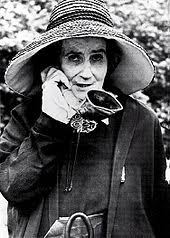by Mike Metz, PhD

Mike Metz, PhD
Consider the success of the “Big Box” sales of hearing aids. Costco alone has become the second largest dispensing entity of hearing instruments in the US, and just lowered the cost of their premium Kirkland 7.0 instruments. What do you suppose is their return-for-credit rate?
No matter which of the three possibilities—better, less, or the same as the rest of the industry—the cogent point is that there must be some people who wish to get clinical services on their hearing problems and cannot get those services from their local Big Box store. Relative to how often some clinical follow-up is needed, the logical guess is that the follow-up rate and the failure rate of Costco-dispensed aids is the same or worse than the rest of the industry.
“Locked” Hearing Aids and HIPAA
Perhaps some of these instrument users opt to obtain rehabilitative services from a clinician, say, perhaps, an audiologist. In an outside office, they will encounter the situation that no “outside” clinician can access the settings of their hearing aid software.
Inability to access parameters of certain hearing aids is not new. Some manufacturers or distributors have never allowed offices other than their own to obtain software for programming their instruments. Now it seems that big box retailers are playing the same “lock-out” game in an effort to keep their customers. (What other reason could there be?)
Such actions raise interesting questions: Do hearing aids that have “locked” programs violate the HIPAA regulations? If the instruments sold as locked have been labeled as hearing aids, doesn’t that make these devices a healthcare item? And as an item related to hearing healthcare, if the seller of the devices cannot deliver sufficient clinical services due to time, training or any other factor, what are the ethical and/or legal implications of such circumstance?
Already most of these sellers get away with hearing tests that are not really health tests as they are only for the purposes of making a sale. Many state laws require a test disclaimer. But, there are no disclaimers for the “hearing instrument” not being a real—unlocked— hearing aid.
A Healthcare Item or “Product”?
Are hearing instruments sold by such stores a “healthcare” product?
- If the answer were “yes”, it would seem that denying patient access to the software, which becomes part of the patient/customer’s healthcare file, is a violation of the HIPAA regulations. The manufacturers of most every hearing aid sold by these stores have signed on to the HIPAA regulations. Thus, the manufacturer in denying access to the software denies the patient is access to his or her health files.
- If people who sell these devices think they are not “healthcare” providers, the answer may still be “yes” due to the undeniable ties between hearing, hearing aids, manufacturer positions, and the long-standing history of hearing aids being in the health arena.
This question is obviously tied to the PSAP debate. If manufacturers supply PSAPs to big stores, does this take the PSAP out of the health arena? Can it depend on the manufacturer and what they call the device? Could it be that simple? Of course, that provides for it’s own downside in terms of a different sort of competition. The upside of this plan is that the consumer would not fall into the notion that Big Box care is the same as real health care.
If there is an audiologist in the Big Box mix—a healthcare-licensed professional—can this clinician be excused from the ethical and legal responsibilities involved in his or her professional license and label? Is it that easy to rid oneself of the responsibility placed by the public trust?
Who’s to blame, or better yet, what can a patient do? It would seem that the most reasonable answer, considering the nature and extent of hearing loss in our population, is to unlock the software and allow any hearing healthcare clinician access to the parameters of the instruments.
This restores the patient’s choice of clinicians and future hearing care as well as providing a cost choice. Of course, the Big Box stores would oppose this change as it disallows their exclusive hold on the products they sell. Any private label advantages would no longer be theirs (influence with their suppliers may prove this course difficult).
It’s still not a good idea to deny any clinician the programming data, the knowledge of, or the access to a hearing loss. Similarly, no information should be withheld from any health problem for that matter. Such denial is not in the best interest of the patient, the manufacturers, or the retailer.
Mike Metz, PhD, has been a practicing audiologist for over 45 years, having taught in several university settings and, in partnership with Bob Sandlin, providing continuing education for audiology and dispensing in California for over 3 decades. Mike owned and operated a private practice in Southern California for over 30 years. He has been professionally active in such areas as electric response testing, hearing conservation, hearing aid dispensing, and legal/ethical issues. He continues to practice in a limited manner in Irvine, California.
*title image courtesy History







My friend, you are still in the dark ages.
This is a question the ENTIRE industry needs to consider.
This is NOT just Costco. Beltone, Audigy, Miracle Ear, among many, many more, could be easily targeted in this because they all use “locked” software. Furthermore, not all manufacturers at Costco use locked software. For example, Bernafon software is not locked, and outside clinics can program them without any problems using the same software. This might also be true for others, I cannot say.
I think this would be a MANUFACTURER issue equally as much as it is a retailer issue. Perhaps we should say instead, “Big Six, Tear Down That Wall!”
Will you find a 5-7 year old car, sold as new in a dealership? NO!
Costco sells old technology as current in their stores. The prices are as “reconditioned “, and the manufacturers find these dumping grounds for such aids, that don’t help as much as the current technology. Try and sell a used 3 month old aid . You will not get even a reconditioned price for it, unless you “sell” the product. if the consumer knows that it is old technology, they they will most probably not buy the product. But they are ignorant, and this fact must be exposed.
Rexton (and Kirkland branded) products purchased at Costco can be programmed at any office that has the Rexton software.
@Thomas: Did Rexton change their Costco – lock policy within the last 2-3 years? As I understand it from the $1 million internal theft by ex-employee Thyvuth Lin three years ago, at least some of the aids he stole were locked.
From the 11/13/2013 Star-Tribune:
“The scheme began to unravel when Costco began receiving calls, usually involving warranties, about hearing aids. When Costco employees checked the serial numbers, they discovered that those hearing aids had been sent back to Rexton and were not supposed to be sold again, the complaint said. The customers said they had purchased the hearing aids on eBay.”
As I was told by a rep, the actual trigger was people were buying these aids not knowing they were locked to Costco; and when they took the aids to a local hearing aid professional and they would not connect to the RexFit software, they were sent to Costco for the reprogramming.
All hearing aids are locked in as much as I, the HOH customer. Can’t (without much gile & dodgy dealing on eBay) do what I want to do. Buy the aid and set up software and be allowed to set it up myself to suit the real world in which I live.
When that is possible I’ll part with real money. For now the dear old NHS will have to do.
So just out of curiosity is there any movement for patients to get access to software for adjusting their own pacemaker or defibrillator?